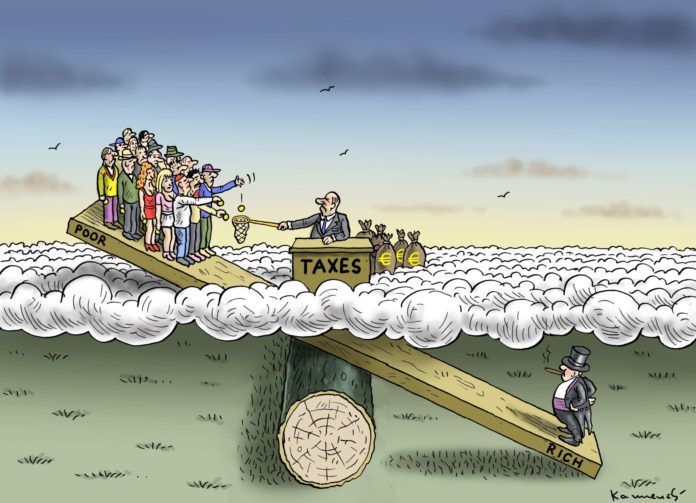BY DAVID PERRYMAN
 Sixty years ago, Tennessee Ernie Ford’s version of Sixteen Tons reached No. 1 on the Billboard charts. The lyrics were written and performed by Merle Travis nine years earlier, but Ford’s beloved humor and rich bass-baritone voice sent the song to the top for seven weeks in late 1955 and early 1956.
Sixty years ago, Tennessee Ernie Ford’s version of Sixteen Tons reached No. 1 on the Billboard charts. The lyrics were written and performed by Merle Travis nine years earlier, but Ford’s beloved humor and rich bass-baritone voice sent the song to the top for seven weeks in late 1955 and early 1956.
The folk song relates the social and economic oppression of a culture that labored endlessly in the coalmines. The monumental task of loading 16 tons of coal day after day was rewarded by nothing more than being “another day older and deeper in debt.” The constant and inescapable debt arose because of low wages and a “truck system” in which workers would be paid with private scrip that could only be spent at the “company store.”
Since that economic system treated workers as tools or resources to be used and cast away, it provided, at best, only bare subsistence. The ballad spoke of a people that were too poor to die. According to the lyrics, “St. Peter, don’t you call me, ‘cause I can’t go; I owe my soul to the company store.”
This mindset that a person is a resource that may be taken, used and discarded is the same mindset that causes a state to use infrastructure that exists without planning for its replacement or repair. Historically, Oklahoma’s aging infrastructure, installed generations ago, has been used and abused, and even if currently functional, it suffers from deferred maintenance.
According to the Small Business and Entrepreneurship Council, in 2014, only two states spent less in local and state spending and the majority spends from 25% more to 250% more than Oklahoma on things like roads, bridges, education and health care.
According to the Oklahoma Policy Institute, that equated to $1,700 less per person than the average state in 2005 and $900 less per person than our surrounding states. Consequently, the condition of Oklahoma’s public structures and facilities rank in the bottom 10 states nationwide.
Coupling the deplorable condition of our infrastructure with a complete lack of fiscal foresight, Oklahoma puts itself in a condition of being unable to “pay the piper” as roads, bridges and water and sewer lines collapse from age and neglect.
Politicians run for office on a platform of “cutting taxes” without regard to the cost of delivering core services. The fallacy in perpetually cutting taxes is an inexplicable assumption that government will always be “too big;” that there will always be “waste in government;” and that governmental services will always be available regardless of the amount of tax revenue.
The fiscal truth is that when taxes are cut, governmental services will be cut, unless other sources of revenue are identified and utilized to fund governmental services that are at risk.
For instance, when state income taxes are cut, counties, cities and towns will be forced to increase sales taxes or property taxes to repair roads, educate children or provide health care.
According to the Center on Budget and Policy Priorities, income tax cuts are a poor strategy for economic growth and the states that tried deep income tax cuts over the last three decades have not seen their economies surge as a result. In fact, four of the five states that enacted the largest personal income tax cuts in the last few years have had slower job growth since enacting their cuts than the nation as a whole.
Four of the six states that cut personal income taxes significantly in the 2000s saw their share of national employment decline after the cuts were enacted. The exceptions – New Mexico and Oklahoma – grew mostly because of a sharp run-up in oil prices in the mid-2000s. That trend reversed when oil prices declined.
For decades, individuals and businesses have utilized water and sewer lines and roads and bridges that are 50 to 75 to 100 years old and given little thought to their upkeep. With historic flooding and storm devastation, we find that tax cuts have devastated our ability to pay for repairs. That should not be a surprise since we were unable to pay for education and health care prior to the storms.
Our infrastructure is another day older and we’re deeper in debt. My, what a bind! We have sold our soul to the party line.
– David Perryman, a Chickasha Democrat, represents District 56 in the Oklahoma House of Representatives







